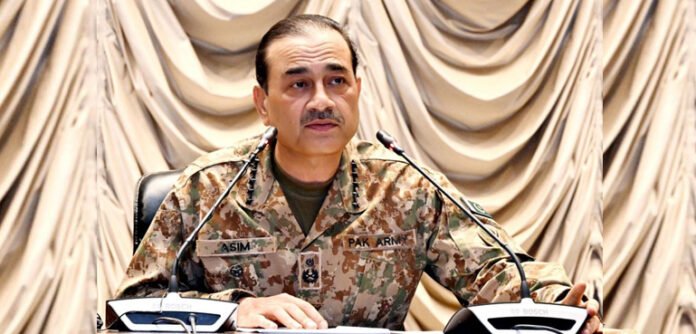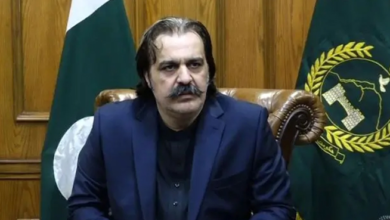Baseless Allegations, Solid Resolve

By Ghulam Haider Shaikh
The recent statement by Field Marshal Asim Munir rejecting India’s accusations of foreign support in Pakistan’s successful Operation Bunyan Mursas underscores a harsh truth: when narratives fail, propaganda becomes the last refuge of frustrated adversaries. India’s claims are not only factually incorrect but also reveal a deep discomfort with Pakistan’s decisive moves against terrorism.
Operation Bunyan Mursas, launched to eradicate entrenched terrorist networks and restore state writ in volatile regions, marks a historic turning point in Pakistan’s counterterrorism efforts. The operation’s success stems from meticulous planning, strategic deployment of forces, and above all, the resilience of Pakistani troops and civilians. To attribute this achievement to “foreign support” is to ignore the ground realities and discredit years of indigenous struggle against militancy.
For over two decades, Pakistan has been on the frontlines of the global war on terror, paying an immense price in lives, infrastructure, and economic stability. According to official estimates, over 80,000 Pakistanis, including security personnel and civilians, have been martyred in terrorist attacks since 2001. Entire communities have been displaced, schools and hospitals destroyed, and the economy strangled by the costs of instability. Despite this, Pakistan’s security forces have gradually turned the tide through hard-earned experience and unyielding commitment.
India’s allegations seem less about facts and more about shifting focus from its own controversies. Domestically, India faces increasing scrutiny over its handling of insurgencies in its northeast, persistent unrest in Indian-administered Kashmir, and rising communal violence fueled by divisive politics. Internationally, New Delhi’s carefully cultivated image as a rising power has been dented by reports of human rights violations and aggressive posturing in the region. By accusing Pakistan of receiving “external support,” Indian officials attempt to frame their neighbor as a puppet of foreign powers while distracting from their own failures.
Field Marshal Munir’s firm response reflects not only military confidence but also national maturity. Pakistan has, in fact, endured years of external pressures—including sanctions, aid cuts, and diplomatic isolation—yet has continued to pursue internal security objectives on its own terms. Recent progress owes more to domestic consensus against extremism than to any foreign hand. From intelligence-led operations to community engagement in restive areas, Pakistan’s approach has evolved into a sophisticated counterterrorism model that other states could study.
India’s narrative, however, carries risks beyond rhetoric. Such unfounded accusations poison an already tense regional environment. They undermine possibilities for dialogue and cooperation against a common threat: transnational terrorism. If both countries are serious about securing their borders and safeguarding their citizens, a shift from blame games to confidence-building is imperative.
The international community must also see through this fog of propaganda. For years, Pakistan has faced accusations of “harboring” militants even as its own citizens fell victim to the same groups. Now, as it reasserts control and stabilizes conflict zones, it deserves recognition, not suspicion.
Operation Bunyan Mursas represents the culmination of Pakistan’s sacrifices, strategy, and self-reliance. It is not th e product of foreign sponsorship but of national resolve. The country’s armed forces and intelligence agencies have proved capable of achieving security objectives without compromising sovereignty.
In an era of hybrid warfare and information manipulation, truth itself becomes a battleground. Field Marshal Munir’s statement is a reminder that Pakistan’s fight against terror is homegrown and deeply personal. The people of Pakistan have suffered enough at the hands of extremists; their victories should not be tarnished by baseless allegations.
India would do well to focus on addressing its internal challenges rather than questioning its neighbor’s achievements. Peace in South Asia demands mutual respect and a shared commitment to combating extremism—not reckless finger pointing .




